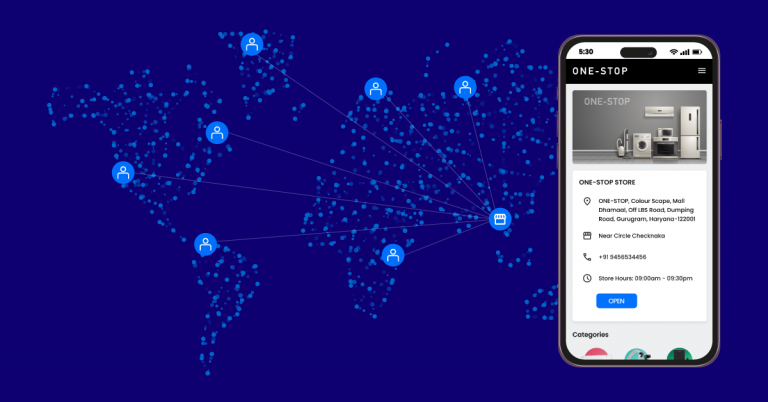Today’s interconnected world has opened up new horizons for businesses, allowing them to expand beyond their local markets. Global expansion is necessary for companies looking to tap into new customer bases and unlock growth opportunities worldwide. However, the path to succeeding in new geographic markets is not always as easy as it may seem.
This is where location pages come into play. With effective local-level activities and momentum, the global image gradually gets polished. With competent partners such as SingleInterface, brands can tap massive business opportunities by implementing Location pages.
Location pages act as digital ambassadors for your brand, offering useful information at a local level , creating a seamless experience for your local customers.
But that’s just the tip of the iceberg. These location pages go a step further and reflect the unique flavour of each local market. You can showcase regional product offerings, share customer reviews, and answer local concerns. These can also help you build credibility and bridge the global and local gap.
In this article, we will take you through a detailed guide exploring the role of location pages in global expansion and how they can help businesses thrive in diverse markets.
Brand localisation can be described as tactics a brand may follow, to adapt to a specific market or location’s cultural, linguistic, and operational nuances. It goes beyond simple translation and encompasses everything from content and design to marketing and customer service.
Some of the key components of brand localization include,
Language Adaptation – Translating content into the local language is a fundamental aspect of localization. This includes marketing materials, product descriptions, websites, and other communication channels.
Product Customisation – Customizing the brand’s products and services to meet local preferences and needs is also crucial. It may involve modifying features, packaging, or branding to better suit the tastes of the local market.
Local Marketing Strategies – For any business to succeed in a foreign land, developing marketing strategies that resonate with the target audience is a must. This involves understanding local media preferences, consumer behavior, and effective communication channels for reaching and forming value-driven associations. The key strategy to this is location pages. These serve as pillars that help brands form a local digital personality, providing business information, personalization, and optimize local search.
When implemented correctly, hyperlocal marketing can demonstrate a brand’s respect for local customers and preferences, increasing the chances of acceptance and success in a new market. In addition to this, it also results in a seamless and authentic experience for customers in different regions, fostering trust, engagement, and loyalty.
Location-specific web pages allow businesses to create content tailored to specific regions. This enables localised marketing strategies, considering cultural nuances, language preferences, and regional trends.

To effectively leverage local business listing sites, in global expansion, you must follow the below-mentioned best practices.
Location pages have emerged as a fundamental tool for businesses looking to expand globally while maintaining a strong connection with their local audience. Brands can now successfully navigate all the complexities of global expansion and create long-lasting customer relationships in diverse markets, by strengthening local-level activities, of which implementing Location-specific pages is a critical one.